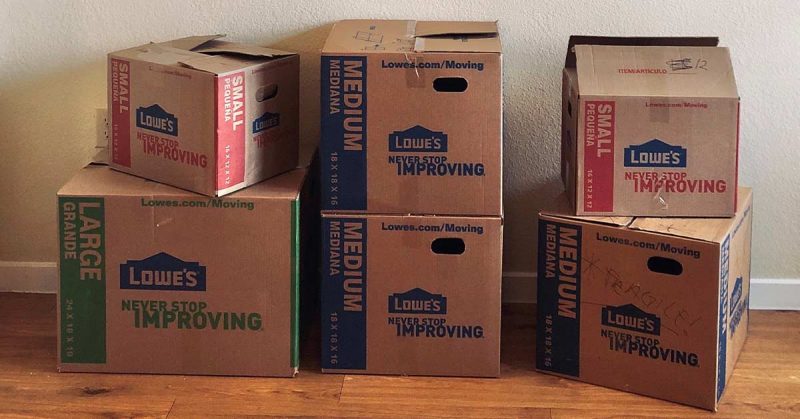Moving: It’s an inevitable part of military life. Each time a military family starts the PCS process again, the question presents itself: Should we buy a house or rent? The truth is that the right answer for your family can depend on many factors. Of course, another option that goes hand-in-hand with renting is living on-base. For simplicity’s sake, we’ll break housing options into two categories: buying and renting.
Let’s jump in with a quick overview of the pros and cons. Then, we’ll cover the top four things that you should consider before buying.
Renting Pros and Cons
Renting is a great option for many military families. It provides the flexibility to move quickly when the time comes. This can be very helpful logistically if orders are received on short notice. Plus, it’s easier to plan a move when you don’t have to worry about selling your home and possibly buying a new one in another location.
Renting also provides peace of mind when it comes to repairs. This is especially helpful when repairs are necessary during a deployment. Why? Because your property manager or landlord is responsible to make problems right – not the stateside spouse.
The downside is that you’ll likely be unable to customize your home. Plus, when renting, some worry about missing out on investing in a large asset, like a house. Consequently, some choose to purchase a home during a new assignment.
Buying Pros and Cons
Purchasing allows you to put your housing allowance toward an asset and put down roots. Plus, if it is done well, the sale can give you a financial boost when you move again.
However, the truth of the matter is that it doesn’t always work out that easily. Some markets don’t allow for a quick and easy resale. Remember, if you purchase a home during a seller’s market (when prices are inflated in favor of the seller’s wallet), you’ll pay top dollar for the house now, but the market could change in a few months. When it turns, it becomes what is called a buyer’s market (when prices are low in favor of the buyer’s wallet). This means that you might have to resell the home for less than you paid or choose to rent the house out to avoid losing money.
Also, it can be difficult to manage a property while you’re living elsewhere. Consequently, some families choose to hire a property management company. A property management company does all the “landlord” stuff on your behalf for a fee.
Still, if you buy your home at a great time during a buyer’s market (at a low price), and the market changes into a seller’s market before you move again, you could make some money off of the sale.
Now that you know the pros and cons of buying and selling, let’s cover the top four things that you should consider before buying:
- If you’re purchasing (or renting, too), try not to use your entire housing allowance on the home/apartment payment itself. Leave some wiggle room to cover utilities and other household expenses. Your wallet will thank you. Plus, you’ll have more room in your budget to furnish your new home.
- Location, location, location. Think about where you are buying the home. Check out statistics in the area – do homes resell quickly in that neighborhood or do they sit on the market for a while? This could cause you delays in moving later. Consequently, you might have to rent the house out to someone else when you leave.
- The traditional turnaround time for closing on a Veterans Affairs Loan Mortgage is 30-50 days. Still, there can be delays with any home closing. Remember to factor flexibility into your plan to eliminate a mad scramble to make arrangements if/when a delay arises. Also, consider the length of your service member’s assignment. In most cases, you’ll need to stay in a home for at least a few years to come out ahead financially.
- Signing the dotted line. Did you know that mortgage closing documents typically must be physically signed by the buyer? So, if your service member will not be there to sign, you MUST have a power of attorney document to complete the process. A general POA document will not work for this. It must specifically allow you to physically sign for a mortgage sale on your service member’s behalf.
It can be tough to decide on your home sweet home! Remember to weigh the pros and cons and do some research! Need more help? Check out Moving & Housing Resources from Military OneSource for the scoop on all things “PCS”!




